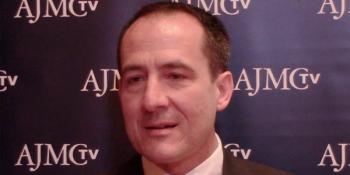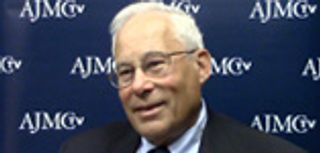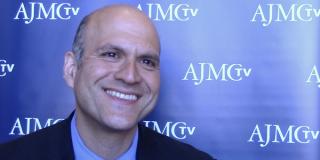
Value-Based Care
Latest News
Latest Videos

More News

One of the positive effects of the Affordable Care Act’s shift to value-based care is that providers and payers are experimenting with a number of new models, so the successful ones are being implemented on a larger scale, according to Andrei Gonzales, director of value-based reimbursement initiatives at McKesson Health Solutions.

The number of accountable care organizations (ACOs) has grown rapidly over the last 4 years, with more than 800 ACOs now covering an estimated 28 million Americans. A study found that commercial ACOs were significantly larger and more integrated with hospitals and had lower benchmark expenditures and high quality scores compared with noncommercial ACOs.

Despite progress, tying healthcare payments to value has proved easier in theory than in practice, according to speakers at this fall’s meeting of the ACO & Emerging Healthcare Delivery Coalition. Experts convened October 20-21, 2016, by The American Journal of Managed Care looked ahead at the challenges the next president will face with the future of the Affordable Care Act.

Accountable care organizations (ACOs) have been laying the groundwork for the requirements for the Medicare Access and CHIP Reauthorization Act (MACRA), which will give physicians participating in ACOs an advantage during the implementation of the new Medicare payment system, said Katherine Schneider, MD, president of the Delaware Valley ACO.

The innovative strategy of hotspotting, implemented by the Camden Coalition of Healthcare Providers, was the focus of a session and a panel discussion during the first day of the ACO & Emerging Healthcare Delivery Coalition.

Panel members discuss the level of physician awareness regarding changes that will follow the implementation of CMS’ recently released Medicare Access and CHIP Reauthorization Act (MACRA).

In the keynote speech at the ACO & Emerging Healthcare Delivery Coalition, Mark McClellan, MD, PhD, director of the Duke-Margolis Center for Health Policy, started out by providing a broad picture of Medicare reform before narrowing it down to what is happening on the ground.

Healthcare attorney James M. Daniel, Jr, JD, MBA, explained how healthcare providers will be impacted by CMS’ newly released final rule on the implementation of the Medicare Access and CHIP Reauthorization Act (MACRA) in a session during the second day of the ACO & Emerging Healthcare Delivery Coalition.

Over the last 4 years, the ACO & Emerging Healthcare Delivery Coalition has continued to grow as a result of the opportunities to hear about innovations in accountable care organizations (ACOs) and to network with a diverse group of people, said Anthony Slonim, MD, DrPH, president and CEO of Renown Health and chair of the ACO Coalition.

The Camden Coalition of Healthcare Providers utilizes hotspotting to identify the most complex and costly patients and enrolls them in a care management program to empower them to take control of their own healthcare.

Communication gaps complicate healthcare and can devastate the prognosis of a patient undergoing cancer treatment. Here are a few ways to overcome inconsistencies with cancer care delivery

ACOs have great potential in helping achieve a more value-based delivery system, said Risa Lavizzo-Mourey, MD, MBA, outgoing president and CEO of the Robert Wood Johnson Foundation. She also discussed the challenges that safety net ACOs face in delivering care with fewer resources.

Today, federal officials released the final rule for the Medicare Access & CHIP Reauthorization Act (MACRA), which will overhaul the way doctors are paid. To understand what this rule means to the future of value-based healthcare, join The American Journal of Managed Care October 20-21, 2016, in Philadelphia for the fall meeting of its ACO & Emerging Healthcare Delivery Coalition.

To discuss the progress in care collaboration and also what is currently lacking in care practices in oncology, The American Journal of Managed CareÂ�® invited Rebekkah Schear, MIA, LIVESTRONG Foundation, and Michael Kolodziej, MD, Flatiron Health.

HHS has issued its final rule on the Medicare Access and CHIP Reauthorization Act (MACRA), which reforms the Medicare payment system as part of the shift to value-based care. Here are 5 things to know about the final rule.

Clinicians may at first be confused by new value-based care regulations, but there are resources to help them understand, said Kate Goodrich, MD, director of the Quality Measurement and Value-Based Incentives Group in CMS.

Payment reform in the United States is moving quickly, but there are still a lot of unknowns among providers. Meetings like the ACO & Emerging Healthcare Delivery Coalition help accountable care organizations (ACOs) and providers share best practices and figure out how to succeed, said Mark McClellan, MD, PhD, director of the Duke-Margolis Center for Health Policy and keynote speaker at the ACO Coalition's fall meeting in Philadelphia, Pennsylvania, October 20-21. Learn more about the meeting and register.

Highlights of our peer-reviewed research in the healthcare and mainstream press.

With 6 years under his belt, Patrick Conway, MD, is the longest serving chief medical officer in CMS history. During those 6 years, he has seen alignment with private payers increasing, Conway said during a plenary session at the fall meeting of the National Association of Accountable Care Organizations.

This week, the top stories in managed care included 2 reports on the fight against addiction, researchers have learned more about the effects of healthy living on avoiding cancers, and a study finds fitness trackers do not help people lose more weight.

CMS announced on Thursday that it would award $347 million in contracts to various hospital associations and quality improvement organizations as part of its ongoing effort to reduce hospital-acquired conditions and readmissions in the Medicare program. The Hospital Improvement and Innovation Network agreement sets high goals in hopes of continuing the progress that has already been made in patient safety.

During a session of the National Association of Accountable Care Organizations, panelists discuss the benefits of integrating behavioral health and the role accountable care organizations can play.

What we're reading, September 30, 2016: HHS prioritized payments to Obamacare insurers over the Treasury; the CDC is concerned flu vaccinations may be down; and UnitedHealth Group and University of California come together for new partnership.

Digital health programs like telehealth have already made progress in fields like mental health by expanding access and lowering costs, but there are opportunities to achieve much more in the future, according to Susan Dentzer, president and CEO of The Network for Excellence in Health Innovation.

During the fall meeting of the National Association of Accountable Care Organizations (NAACOS) in Washington, DC, speakers from the government and from various ACOs across the country shared their insights into the success and opportunities of these delivery models. Here are 5 takeaways from the NAACOS fall conference.













